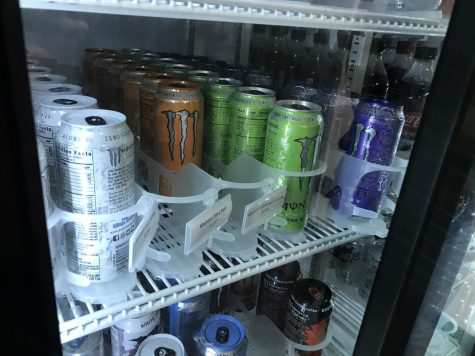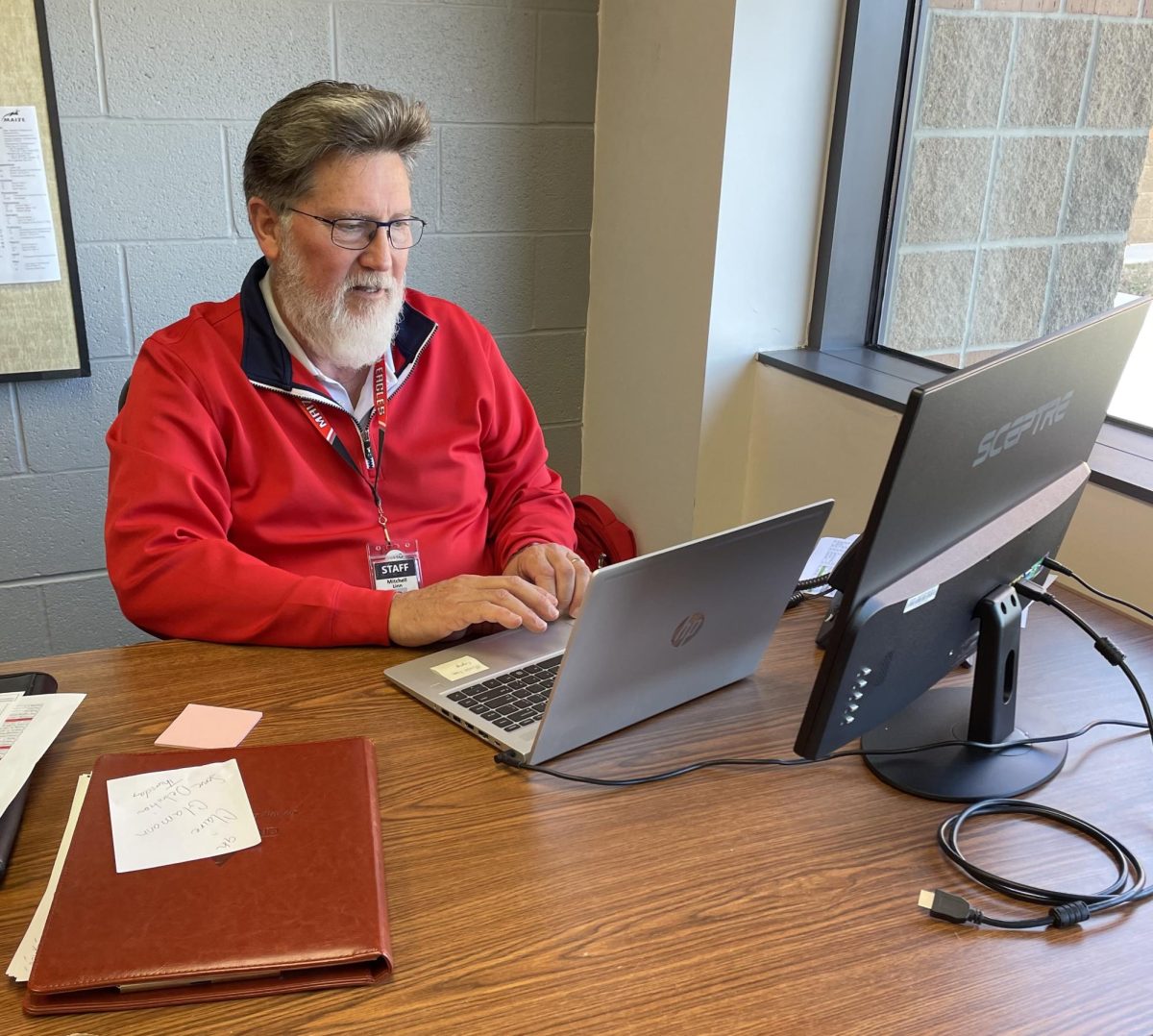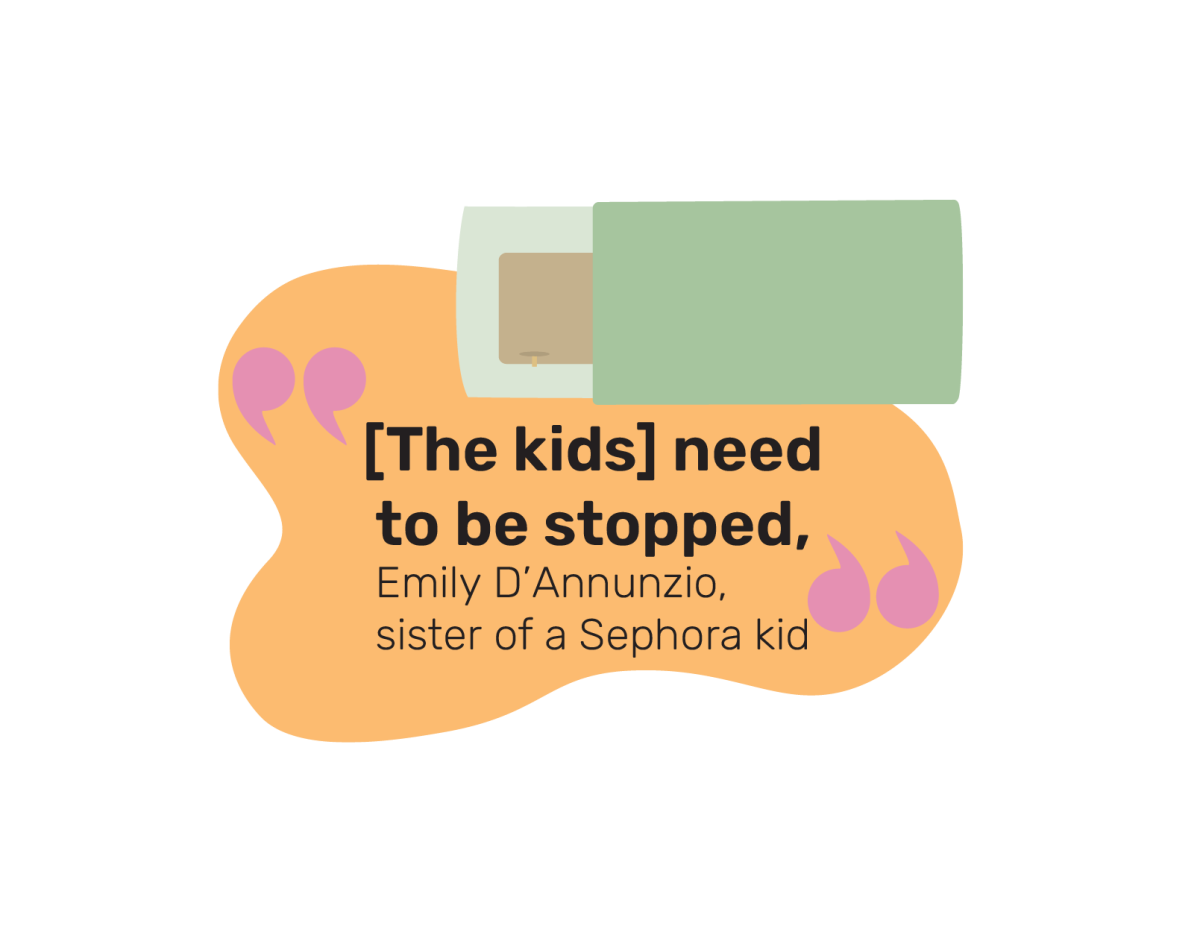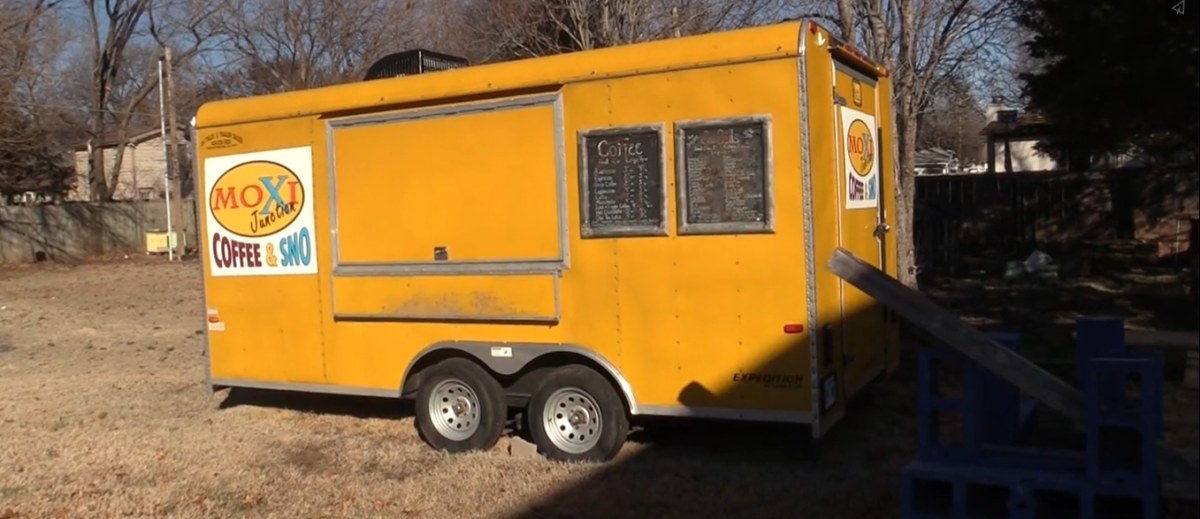Energy drinks have no place in schools
November 12, 2019

Energy drinks are one of the many drinks sold at the school store.
Dehydration. Irregular heartbeat. Anxiety. Insomnia. Heart failure. These are all symptoms of a common substance.
“You have headaches, you can’t focus, you can’t sleep,” nurse Dana Desjardins said. “Your body gets it, your liver processes it, your liver says, ‘Oh, I like this. … I need it, I need it now, all the time.’”
It’s not a gateway drug, not something you get from the hands of a friend of a friend in a dark parking lot. It’s not illegal. It’s not hard to acquire. It’s right down the hall, in the school store, sold for $2.50.
It’s caffeine, and it’s the stimulant found in your Monster.
“I really don’t [think teenagers should drink energy drinks],” Desjardins said. “I don’t think anybody should be drinking energy drinks at all. It’s just not good for you.”
Despite a general consensus by the American Academy of Pediatrics and our very own nurse that caffeine should be avoided, highly-caffeinated drinks are still being sold in the school store.
The product with the highest amount of caffeine is Reign, which stacks in at a whopping 300mg of caffeine per 16oz. To put it in perspective, the APA recommends that adolescents aged 12 to 18 have no more than 100mg a day.
Junior Annabelle Willett, avid Monster fan, drinks one to three energy drinks a day.
“I need the extra boost in the morning,” Willett said. “Everytime I wake up, I’m super tired so I just drink one to actually function.”
Willett’s story is far from uncommon. Walking through the halls of school, it’s not hard to find the tall cans trademark to energy drinks.
Caffeine is defined as a drug because it stimulates the central nervous system. That means that the school store, by definition, is selling a drug, and amounts of that drug that exceed the recommended limit.
Desjardins doesn’t thinks teens, nor anyone, should be thinking caffeine, yet energy drinks are part of many students’ daily routine, some bought from the school store. The health of students needs to come first, way before a 30 minute energy boost or store profits.
“I see why they do it,” Desjardins said about the sale of energy drinks in school. “They’re just like all our other stores that are here. They’re supplying. It’s the supply and demand, it’s economics, they’re appealing to their customer base, and if they make money off of it, I’m not saying it’s okay, I’m not saying it’s not okay. I can see why they do it.”
Dana Handy, who runs the school store, thinks that caffeine is fine is moderation.
“They’re not the healthiest thing,” Handy said. “But theres lots of things that they eat and drink that aren’t necessarily that healthy.”
She tries to do what she can to make sure students aren’t using the store to practice unhealthy habits.
“If they buy more than one, I’m always telling them, ‘you shouldn’t drink both of those in the same day,’” Handy said. “I’m just trying to make sure that they’re not doing something that could be potentially harmful to them.”
Monster energy drinks have 86mg, almost reaching the maximum caffeine dosage for teens in just one drink. Three Monsters a day, which Willett often drinks, brings you to 258mg of caffeine, almost three times the maximum dosage. That’s the same as drinking more than seven Coca Cola cans. However, three Monsters still doesn’t reach the caffeine amount of one can of Reign.
“I’m sure it is over the recommended amount of caffeine in one day,” Handy said about Reign’s 300mg of caffeine. “That doesn’t surprise me, but the reason we added Reign is because it does have some other healthy [things]. It’s got amino acids and some vitamins in it, which Monster doesn’t really [have], so I guess it’s taking the bad with the good.”
However, by selling energy drinks at all, students have a surplus of caffeine right at their fingertips. Just one can of Reign is three times the limit, and, even with one drink a day, that’s unhealthy according to the APA.
Energy drinks have no place in schools. Caffeine is a superficial solution for tiredness and a lack of sleep. And until our school starts promoting healthy habits, nothing will change.




